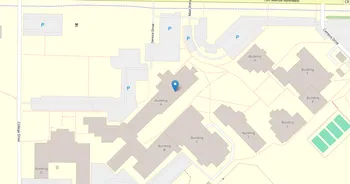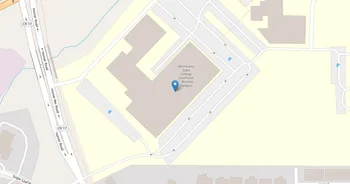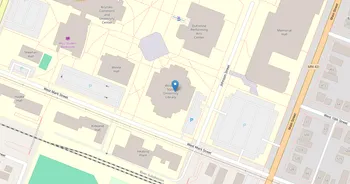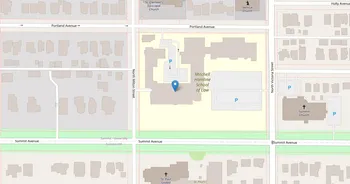Dunwoody College of Technology (DCT) : Overview, Courses, Scholarships & Rankings
About Dunwoody College of Technology
Locals know Dunwoody College of Technology for hands-on learning that sticks. The college focuses on applied engineering, design, construction, computing, and manufacturing, with classes that favor projects over lectures. Labs, studios, and build-ready spaces set the tone, backed by a library, tech help, tutoring, and straightforward advising. It feels practical and purposeful, like everyone is here to make something work.
Student life tilts toward doers. Clubs, skills competitions, and student-led builds sit alongside a fitness room and easy access to city parks and trails. And being in Minneapolis means nearby employers, site visits, and internships that start while you're still in class. Career coaching, portfolio feedback, and employer meetups help you translate shop-floor know-how into a job offer. The culture is close-knit, no-nonsense, and collaborative. Look for regular project showcases, too, where students put prototypes on the table and talk through how they got there.
Key Institutional Details
Contact & Profile
Academic & Institutional
Academic Programs & Fields of Study
Dunwoody College of Technology (DCT) offers 28 degree programs across 11 major academic fields, graduating approximately 481 students annually. The most popular fields by graduate volume are Eng. Technologies (7 programs, 84 graduates), Mechanics (3 programs, 65 graduates), Construction (1 programs, 61 graduates), Architecture (1 programs, 49 graduates) and Computer & IT (4 programs, 49 graduates). Explore program details, award levels, and graduate demographics below.
Eng. Technologies (7 programs, 84 graduates)
Applied Engineering Technologies and Technical Support
| Program Name | Graduates | Gender Distribution | Award Levels | CIP Code |
|---|---|---|---|---|
| Robotics Technology | 34 |
|
Associate's
|
15.0405 |
| Electrical and Electronics Drafting and CAD | 20 |
|
Associate's
Other Award
|
15.1305 |
| CAD and CADD Drafting and Design Technology | 15 |
|
Associate's
|
15.1302 |
| Electrical and Electronic Engineering Technology | 7 |
|
Associate's
Other Award
|
15.0303 |
| Surveying Technology | 4 |
|
Other Award
|
15.1102 |
| Civil Engineering Technology | 2 |
|
Associate's
|
15.0201 |
| Manufacturing Engineering Technology | 2 |
|
Other Award
|
15.0613 |
Mechanics (3 programs, 65 graduates)
Automotive Technology, Equipment Repair and Maintenance
| Program Name | Graduates | Gender Distribution | Award Levels | CIP Code |
|---|---|---|---|---|
| Automotive Mechanics Technology | 33 |
|
Associate's
|
47.0604 |
| Heating, Air Conditioning, Ventilation, and Refrigeration Maintenance Technology | 25 |
|
Associate's
|
47.0201 |
| Autobody and Collision Repair Technology | 7 |
|
Associate's
|
47.0603 |
Construction (1 programs, 61 graduates)
Building Trades, Construction Management and Skilled Crafts
| Program Name | Graduates | Gender Distribution | Award Levels | CIP Code |
|---|---|---|---|---|
| Electrician | 61 |
|
Associate's
|
46.0302 |
Architecture (1 programs, 49 graduates)
Architectural Design and Construction Planning Services
| Program Name | Graduates | Gender Distribution | Award Levels | CIP Code |
|---|---|---|---|---|
| Architectural and Building Sciences | 49 |
|
Associate's
Bachelor's
|
04.0902 |
Computer & IT (4 programs, 49 graduates)
Computer Science, Information Technology and Cybersecurity
| Program Name | Graduates | Gender Distribution | Award Levels | CIP Code |
|---|---|---|---|---|
| Computer Systems Networking and Telecommunications | 22 |
|
Associate's
|
11.0901 |
| Information Systems Security and Auditing | 11 |
|
Bachelor's
|
11.1003 |
| Cloud Computing | 9 |
|
Associate's
|
11.0902 |
| Web and Digital Multimedia Design | 7 |
|
Associate's
|
11.0801 |
Production (2 programs, 45 graduates)
Manufacturing Technology, Quality Control and Industrial Arts
| Program Name | Graduates | Gender Distribution | Award Levels | CIP Code |
|---|---|---|---|---|
| Welding Technology | 28 |
|
Certificate (1-2 yrs)
Associate's
|
48.0508 |
| Machine Tool Technology | 17 |
|
Associate's
Other Award
|
48.0501 |
Engineering (5 programs, 42 graduates)
Engineering Sciences and Applied Technology Solutions
| Program Name | Graduates | Gender Distribution | Award Levels | CIP Code |
|---|---|---|---|---|
| Mechatronics and Robotics Engineering | 16 |
|
Bachelor's
|
14.4201 |
| Manufacturing Engineering | 11 |
|
Bachelor's
|
14.3601 |
| Mechanical Engineering | 9 |
|
Bachelor's
|
14.1901 |
| Software Engineering | 3 |
|
Bachelor's
|
14.0903 |
| Electrical and Electronics Engineering | 3 |
|
Bachelor's
|
14.1001 |
Business (2 programs, 39 graduates)
Business Administration, Marketing and Entrepreneurship
| Program Name | Graduates | Gender Distribution | Award Levels | CIP Code |
|---|---|---|---|---|
| Construction Management | 35 |
|
Associate's
Bachelor's
Other Award
|
52.2001 |
| Business Administration and Management | 4 |
|
Bachelor's
|
52.0201 |
Health (1 programs, 19 graduates)
Healthcare Professions, Medical Sciences and Clinical Practice
| Program Name | Graduates | Gender Distribution | Award Levels | CIP Code |
|---|---|---|---|---|
| Medical Radiologic Technology | 19 |
|
Associate's
|
51.0907 |
Arts (1 programs, 17 graduates)
Fine Arts, Design Studies and Creative Performance
| Program Name | Graduates | Gender Distribution | Award Levels | CIP Code |
|---|---|---|---|---|
| Interior Design | 17 |
|
Bachelor's
|
50.0408 |
Admission Requirements & Test Scores
Comprehensive overview of admission criteria, standardized test score ranges, and application requirements for prospective students at Dunwoody College of Technology (DCT).
Application Requirements
Data based on IPEDS for 2022-2023 academic year. Test score ranges represent the middle 50% of admitted students (25th-75th percentile). Requirements may vary by program.
Tuition, Fees & Estimated Costs
Overview of tuition rates, housing, and other annual education expenses for undergraduate and graduate students
Financial Aid & Student Support
Summary of scholarships, grants, student loans, and financial aid statistics for undergraduate students
Student Success Metrics
Graduation rates and post-graduation earnings to help assess student outcomes and long-term value of education.
Loan Burden & Repayment Outcomes
Breakdown of loan repayment rates and student debt levels by income and dependency status.
Frequently Asked Questions
Find answers to the most common questions about Dunwoody College of Technology (DCT)
How much does it cost to attend Dunwoody College of Technology (DCT)?
The annual tuition at Dunwoody College of Technology (DCT) is $25,659 for in-state students. When including room and board, books, and other expenses, the total estimated cost is approximately $44,550 for in-state students. Additional costs include room and board $14,659 and books and supplies $632.
Data based on IPEDS program completions for 2022-2023 academic year. Tuition and cost estimates are approximate and may not include all fees, personal expenses, or transportation costs.
What academic programs and degree levels does Dunwoody College of Technology offer?
Dunwoody College of Technology (DCT) offers 28 academic programs across 11 major fields of study, with available degree levels: Certificate (1-2 yrs), Associate's, Bachelor's, Other Award.
Most popular program areas include:
- Applied Engineering Technologies and Technical Support (7 programs)
- Automotive Technology, Equipment Repair and Maintenance (3 programs)
- Building Trades, Construction Management and Skilled Crafts (1 programs)
- Architectural Design and Construction Planning Services (1 programs)
- Computer Science, Information Technology and Cybersecurity (4 programs)
Data based on IPEDS program completions for 2023-2024 academic year. Numbers reflect programs where students graduated, not all offered programs.
What is the acceptance rate for Dunwoody College of Technology?
Dunwoody College of Technology (DCT) has an 98.5% acceptance rate and a 65.7% yield rate, making it moderately selective.
Admission statistics breakdown:
- Total applicants: 587
- Students admitted: 578
- Students enrolled: 380
Data based on IPEDS for 2022-2023 academic year. Admission statistics may vary by program and application cycle.
What financial aid and scholarships are available at Dunwoody College of Technology?
Dunwoody College of Technology (DCT) provides financial aid to 22% of first-time, full-time students, with average grants of $10,374 and average loans of $9,165.
Average financial aid amounts by type:
- Pell grants: $5,063
- State/Local grants: $2,955
- Institutional grants: $6,858
- Federal loans: $5,192
The university supports 187 students with grants and 240 students with loans annually.
Data based on IPEDS for 2022-2023 academic year. Financial aid amounts and percentages may vary by program, enrollment status, and individual circumstances.
What is the average salary for Dunwoody College of Technology graduates?
Dunwoody College of Technology (DCT) graduates earn a median salary of $59,069 after 6 years and $61,511 after 10 years.
The salary range 10 years after graduation spans from $37,744 (25th percentile) to $85,760 (75th percentile).
Data based on IPEDS for 2022-2023 academic year. Salary data reflects graduates who received federal financial aid (approximately 60% of all graduates). Actual earnings may vary significantly based on program, location, and individual circumstances.
Related Universities




Found something useful? Help others discover it too! Share with friends, on social media, or save for later - every share helps someone find the information they need.